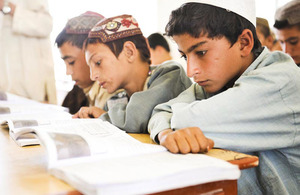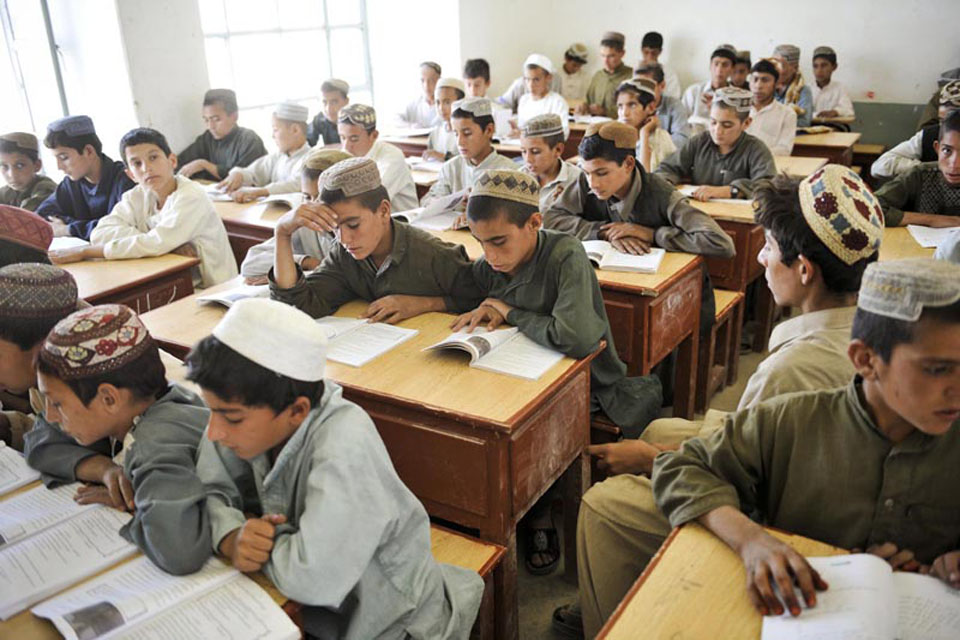UK military help Helmand youngsters back to school
Investment from the Provincial Reconstruction Team (PRT) and the Military Stabilisation Support Team (MSST) has seen a school in Nad 'Ali fully restored, with 600 pupils now being taught there every day.

Student Samiullah (right) attending a lesson at Nad 'Ali Central School in Helmand province, Afghanistan [Picture: Senior Aircraftman Neil Chapman, Crown Copyright/MOD 2010]
The district of Nad ‘Ali was until recently a stronghold for the Taliban and the local people would avoid allowing their youngsters out of their sight, let alone travel to be educated.
And, during the Taliban’s rule, the school was left to fall into a dilapidated state.
Now, security in the area is handled by the Afghan National Army and Afghan National Police, supported by International Security Assistance Force troops.
One student at the school, nine-year-old Samiullah, wants to become a doctor and help the people of his home district.
The youngster listens intently to every word uttered by his teachers and is regarded as one of the brightest pupils at Nad ‘Ali Central School, so much so that he is a year ahead of other boys his age.
He said:
I want to be a doctor when I am older. I want to serve my people and help them when they are sick. I like all of the subjects at school. History is my favourite because we learn about the stories from the history of Afghanistan. There are lots of good stories.
Nad ‘Ali Central School was restored by the MSST based at Forward Operating Base Shawqat. The team has also been involved with the rebuilding of the health clinic in Nad ‘Ali, the district governor’s new compound, a new mosque, and even a new football pitch, complete with goal posts, for the local children.
The management of investment covering the cost of the work comes from the PRT.

A lesson at Nad 'Ali Central School in Helmand province, Afghanistan [Picture: Senior Aircraftman Neil Chapman, Crown Copyright/MOD 2010]
The PRT works closely with District Stabilisation Teams (DSTs) which typically consist of civilian stabilisation advisers, political officers and development advisers.
DSTs work with a MSST within a British area of operations. The teams bring together people with a range of backgrounds including in development, politics, engineering and project management.
Another pupil at the school is 18-year-old Allif Noor, who hopes to go to university in Kabul and eventually become a pharmacist. Allif said:
I enjoy physics, maths and history. Physics is important because it helps us to understand how things work. It is an important subject to understand for the making of medicine, also.
Education is really important. Uneducated people find life more difficult so it is important to have the chance to go to school and then to university.
The school’s head teacher, Kamalludin, who has been teaching for 42 years, said a number of pupils from the school had gone on to work for the Afghan Government.
He said others were now working within the provincial governor’s offices in Helmand province. He added:
The Taliban did not recognise education. We had no furniture because it was not important enough. Now things have changed and it is a change for the good.
Education helps to teach the children the differences between right and wrong. That is why it is so important. I hope in the future many more of the children from the school go on to work in the government and council offices in the district.